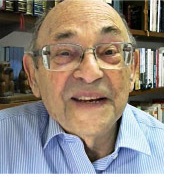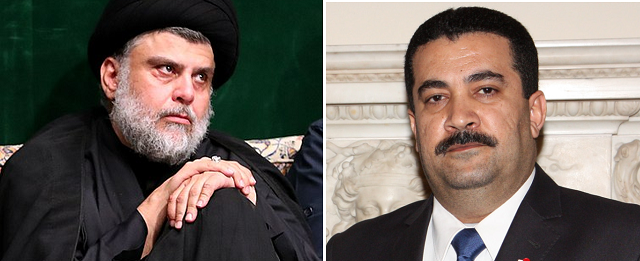by Neville Teller
On July 30 hundreds of supporters of Moqtada al-Sadr, one of Iraq’s leading political figures, breached the parliament building in Baghdad’s fortified Green Zone, forced their way inside, and started a coordinated sit-in to protest at the recent nomination of Mohammed Shia al-Sudani for the premiership. Sixty protesters were injured in clashes with security forces. Three days earlier a mass protest outside parliament by al-Sadr supporters had ended only after al-Sadr tweeted a request to them to disperse.
Iraq has been in a political crisis ever since the general election last October. Months of discussion and negotiation between the various political groupings has failed to result in the election of a president or prime minister, the essential precursors under the Iraqi system for the formation of a government.
Will you offer us a hand? Every gift, regardless of size, fuels our future.
Your critical contribution enables us to maintain our independence from shareholders or wealthy owners, allowing us to keep up reporting without bias. It means we can continue to make Jewish Business News available to everyone.
You can support us for as little as $1 via PayPal at office@jewishbusinessnews.com.
Thank you.
Constitutionally the president, whose duty is to task the future prime minister with forming the new government, must be elected within 30 days of the election of the speaker of parliament. Sunni lawyer Mohammed al-Halbousi was elected speaker on January 9, but the required election of a president within 30 days never happened. Having a newly elected speaker and no president violates the constitution, but that seems a minor matter, given the political deadlock.
As background, it is useful to know that al-Sadr, although a Shiite, leads a popular movement opposed to Iran’s excessive control of Iraqi affairs, while al-Maliki is a leading figure in a major Shia parliamentary grouping called the Coordination Framework, which is very much beholden to Iran.
The venom of al-Maliki’s apparent verbal onslaught against al-Sadr shook the nation. The percentage of voters who believed al-Maliki’s rapid denial of ever saying the words attributed to him, and his assertion that the recordings were fake, is not known. What is certain, however, is that the recordings, genuine or false, removed al-Maliki’s chance of a return as prime minister Al-Sadr himself dismissed them as of no consequence.
In the recordings, al-Maliki, Iraq’s prime minister from 2006 to 2014, apparently reveals a British plot to use al-Sadr as a disposable puppet in a scheme designed to hand Iraq over to Sunni control. “That project exists,” al-Maliki seemingly says, “but I am fighting it, and it is to be fought politically and militarily.” He apparently proceeds to cut al-Sadr to ribbons. “Moqtada is a murderer… the kidnappings, the car bombs…he is a coward, a traitor, an ignoramus who knows nothing.”
In Iraq’s October 2021 general election the bloc led by al-Sadr won 74 seats, making it the largest grouping in the 329-seat parliament. But on June 13, following months of ineffective negotiations and a total failure to nominate people to fill the high offices of state or to form a government, al-Sadr ordered the members of his bloc to resign from parliament.
Under Iraqi law, if an MP resigns, the second-placed candidate in the election takes the empty seat. The process of filling the vacated seats led to a new wave of intense debate and protests, but finally, the pro-Iran Coordination Framework became the majority bloc in parliament. It then nominated Mohammed Shia al-Sudani as prime minister.
A succession of Iran-backed groups and militias welcomed the nomination; the Sadrist reaction was posted on a Facebook site. Dubbing al-Sudani as nothing more than a facade for al-Maliki, al-Sadr was virtually declaring that as prime minister he would be al-Maliki’s puppet. Two days later, on July 27, the country’s political crisis reached boiling point and al-Sadr supporters stormed the Iraqi parliament protesting against al-Sudani’s nomination – a riot instantly quelled by a tweet from al-Sadr.
In the run-up to the election, al-Sadr had committed himself to forming a “national majority government” representing different sects and ethnicities, including Sunni and Kurdish groups but sidelining the pro-Iran Coordination Framework. This commitment put al-Sadr at odds with the Fatah alliance, the political wing of the pro-Iran Popular Mobilization Forces militia. Some pro-Iran militia groups warned of intensified violence if Sunni and Kurdish groups joined an al-Sadr government.
If al-Sadr’s “national majority government” had succeeded, it would finally have put paid to Iraq’s so-called muhasasa political system, imposed on the country after the US-led invasion in 2003. Akin in some respects to Lebanon‘s sectarian power-sharing structure – itself a continual source of political instability – muhasasa is an attempt to provide proportional representation in public office among Iraq’s various ethno-sectarian groups, including Shia, Sunni and Kurdish. Many Iraqis believed from the start that the system was deeply flawed. It was soon widely perceived as underpinning the corruption, collusion and patronage networks that characterized public life in Iraq, and became the target of popular protests. Overturning muhasasa would have markedly reduced Iran’s political influence in Iraq. If al-Sadr ever achieves political power, it may yet come to pass.
Did al-Sadr shoot himself in the foot by ordering the resignation of his 74 parliamentary followers in June? Many of his vacated seats were filled by members of the Coordination Framework, and it might seem as though he had handed his political opponents the power to form a government. However the recent mass political protests by Sadrists clearly demonstrate that al-Sadr is far from a spent force. It is obvious that with or without his parliamentary majority, al-Sadr with his vast supporter-base remains a force to be reckoned with, and will have to be take into account if Iraq’s political turmoil is ever to be resolved.
 The writer is a Middle East correspondent for Eurasia Review. His latest book is: “Trump and the Holy Land: 2016-2020”. Follow him at: www.a-mid-east-journal.blogspot.com
The writer is a Middle East correspondent for Eurasia Review. His latest book is: “Trump and the Holy Land: 2016-2020”. Follow him at: www.a-mid-east-journal.blogspot.com




